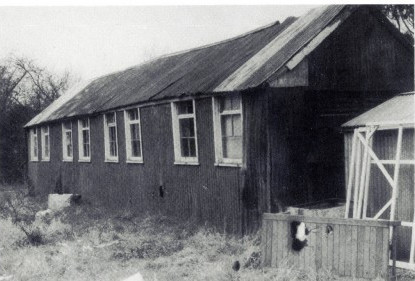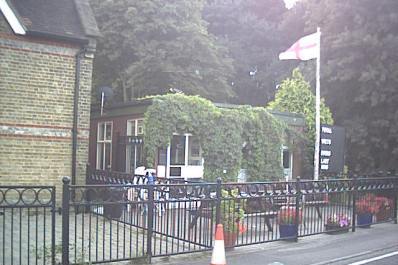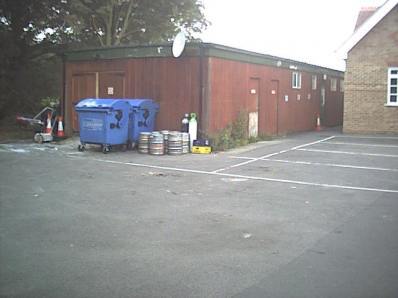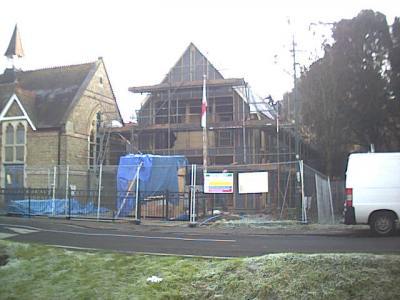WEST END (ESHER) SPORTS & SOCIAL CLUB
A short history of The Oakley Institute/West End Sports & Social Club


In 1875, Queen Victoria granted a parcel of land for the purposes of building a church and a school for the use of the commoners of West End, Esher. Ownership of the land passed to the Church of England who oversaw the building of St George's Church and a school, which in due course became the Village Hall.
In the late 19th century, a corrugated iron building, called the Oakley Institute, was erected at the back of the school playground (now a car park). The Oakley Institute (pictured above prior to its demolition in 1972) provided a youth centre for local boys and was equipped with a billiard table and darts board.
There were also changing facilities for West End Cricket Club and West End Football Club who have both played sport on the common, in the case of the Cricket Club since 1875 and in the case of the Football Club since the foundation of the Institute. In 1972, a lease was signed between the lessors of the land (the Vicar and Churchwardens of Christ Church, Esher) and the lessees (the Trustees of the Oakley Institute).


The lease stipulated that the trustees should vest the trust property with the Charities Commission and at that time the trusteeship should pass to a Committee of Management. The new organisation was to be called West End Sports & Social Club and the Committee was to comprise of 5 elected and 9 appointed trustees. In time, the appointed trustees have been reduced to 5 - two from West End Cricket Club, two from West End Football Club and one from the Parochial Church Council. At the same time, the original building was demolished and replaced by a single storey "portacabin" type structure.
In September 2005, the clubhouse was demolished and a building erected on the existing footprint that was moved some 15 feet back from the road in order not to obscure the recently installed stained glass windows in the Village Hall next door. The new clubhouse re-opened in April 2006 and has proved extremely popular with both the sports and social sections of the Club as well as the local community at large.
David Rolfe ( a former Club President) has also provided a brief history of West End's Social Institutions: